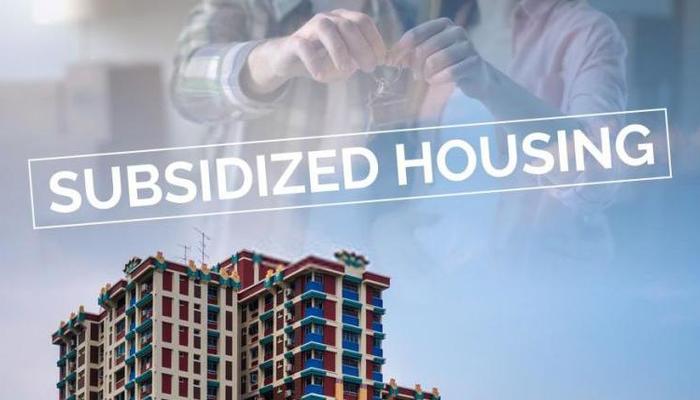What is Subsidized Housing? - 4 minutes read

What is Subsidized Housing?
Subsidized housing is a government sponsored form of economic assistance. It is typically offered to impoverished people who need to lower the cost of their housing. It is also referred to as affordable housing.
Affordable rented vs intermediate tenures
If your looking for an affordable home to call your own, you're in luck. The Canadian government has committed to building a whopping 55,000 affordable homes a year over the next five years. It's estimated that most of these will be social rented. So which is the affordable rented versus the more expensive subsidized housing?
In a nutshell, the best affordable home for you depends on your personal circumstances. You can either buy a share in a property and rent the rest or opt to own it outright. For a start, the department of housing has commenced work on an intermediate rent policy.
Aside from the actual purchase, you'll also have to consider the actual mortgage. This is not to be confused with a government-subsidized mortgage. One of the better parts is that a low interest rate is also possible.
Co-ops and non-profit housing are not subsidized
A housing co-op is a type of non-profit housing that is owned by its members. Each member has voting rights. It is usually housed in a apartment-style building. These buildings are managed by a board of directors.
Shares in a co-op are typically purchased at market value. They cover the costs of operating and maintaining the building. Some buildings may receive government subsidies to help cover the cost of renting the units to low-income tenants.
Most new co-ops are in the most expensive areas of the country. They are also usually directed to families with moderate to high incomes.
Non-profit housing co-ops have the benefit of lower property taxes. They also have the ability to approve neighbors. Unless a co-op is financially secure, there is a chance that a unit will be foreclosed on.
Waiting lists for subsidized housing across Ontario
Waiting lists for subsidized housing across Ontario vary by area and location. While the average wait time is a seven year mark, in some places it can stretch to nine or even ten years.
There are several ways to get help. For example, contact your local community agency or the Coordinated Access Centre. They will tell you about available public and co-op apartments and give you information on where to apply.
One option for chronic waitlisters is to enroll in a private market housing pool. This will allow you to remain on the waiting list, but would also give you a chance to find temporary housing while your application is being reviewed.
The best way to find out more about subsidized housing is to contact your Coordinated Access Centre.
New York City's subsidized housing
The city of New York has been trying to expand its subsidized housing stock, and is doing so in a number of different ways. Some of these include tax credits, zoning allowances, and capital subsidies. However, the process can be frustrating for many people.
Many of these subsidized apartments are located in scattered locations across the city, making it difficult for residents to find them. A pilot program aims to make searching for a subsidized apartment easier by allowing residents to apply online.
Another database, the Subsidized Housing Information Project, launched in September 2011, has extensive information on privately owned subsidized rental housing in the city. In addition, the SHIP also includes details on HUD programs, including the Mitchell-Lama and Low-Income Housing Tax Credit programs.
For the past several decades, moderate-income families and individuals have found it difficult to locate affordable housing in the city. New York City has a wide array of agencies that subsidize housing, but no single agency has a comprehensive list of subsidized units.
Common discriminatory actions in the United States
Housing discrimination is a practice of favoring one group over another. It occurs when someone is treated differently because of their race, religion, disability, gender identity, or family status.
In the United States, housing discrimination is illegal. The Fair Housing Act, part of the Civil Rights Act of 1968, prohibits unlawful discrimination in the housing market. Federal law also covers discrimination by landlords and property owners.
Many states have their own laws to address housing discrimination. These laws may be more comprehensive than the federal law. Some states, such as New York, have very stringent laws. If you believe that you are the victim of discrimination, you can file a complaint with the local HUD office.
You can also bring a civil lawsuit against the property owner. The United States Department of Justice has jurisdiction to file cases when there is a pattern of discrimination.
Click here for more - What is subsidized housing